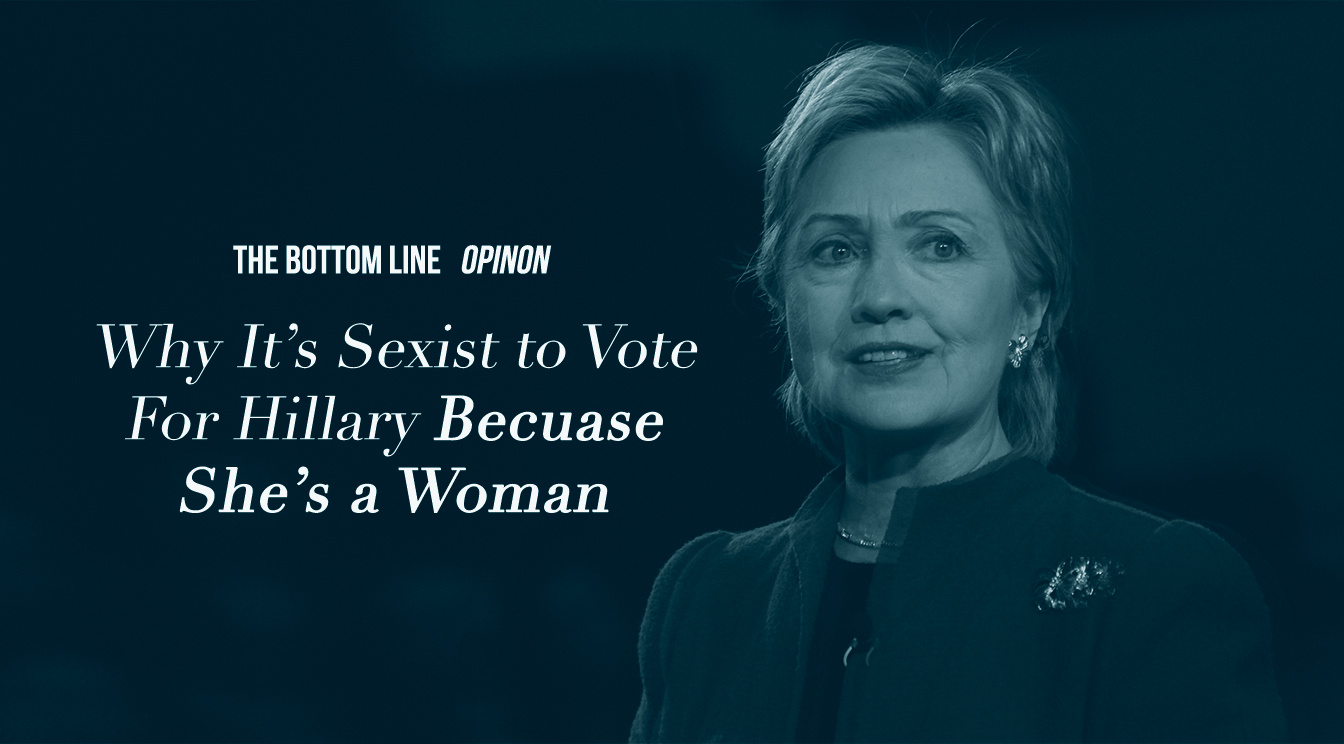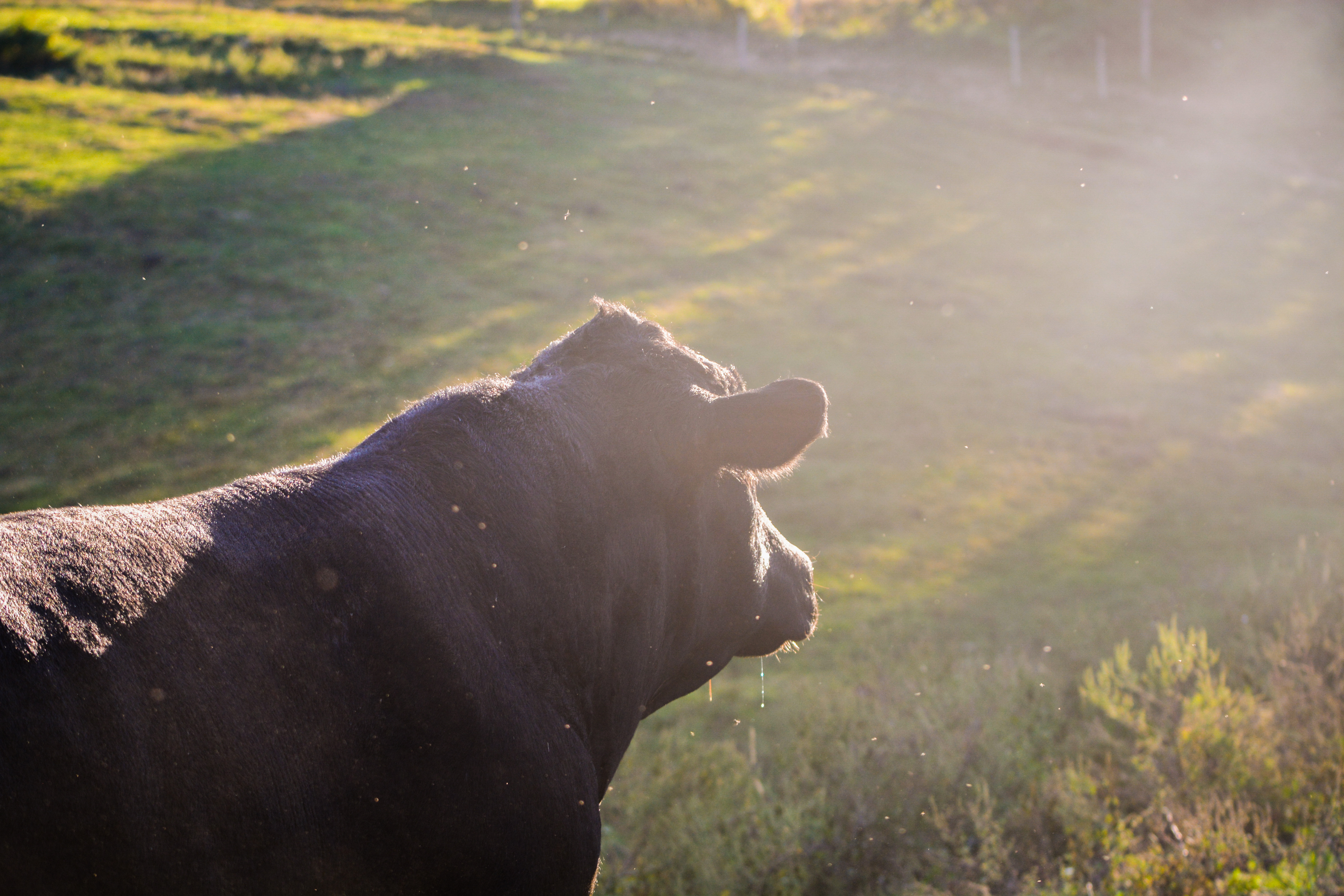Why it’s Sexist to Vote for Hillary Because She’s a Woman
In the past few weeks, democratic presidential candidate Hillary Clinton has shouted her femininity from the rooftops in the hopes that this will garner support from young, female voters. Clinton has even had prominent feminist figures such as Gloria Steinem and Madeleine Albright endorse her publically.
Steinem insinuated that women who support Sanders are doing so to score dates with all the men backing Sanders, because, clearly, democratic socialism is a turn on and that’s all girls care about: getting dates.
Albright introduced Clinton at a rally in New Hampshire, and said the following: “There’s a special place in hell for women who don’t help each other!” The Clinton campaign has faced a lot of criticism for this remark. Many sexist comments are made about women in leadership positions. Blaming their assertiveness on “that time of the month,” wondering loudly about what would happen if the woman in power decided to have children, and the like. Saying that Clinton would not be a good president because she is a woman is sexist, but so is supporting her because she is.
Asking women to vote for her just because she has a vagina is a ridiculous concept. That would have been like if Barack had led his entire campaign yelling “I’m black, and if you’re black you need to vote for me. Because we’re black. Solidarity.”
Clinton’s democratic rival is Vermont senator, Bernie Sanders. Sanders maintains that he is the best candidate for women, and I tend to agree with him. His voting record for his last four decades in Congress shows that he has always been an avid supporter of women’s rights. His records show that he has been pro-choice, pro-family leave, and anti-wage gap for his entire time served. Clinton, on the other hand, has changed her views on these three things to match Sanders’ within the last few years.
On Tuesday February 9th, presidential primary elections were held in New Hampshire. After a less than one percent loss in Iowa, Sanders dominated the New Hampshire voting booths, taking home over 60 percent of the democratic votes.
The people’s votes in New Hampshire count as 24 “pledged” delegates. These delegates are bound by the result of the primary. Sanders has been allotted 15 of these delegates while Clinton possesses the remaining nine. However, based on democratic party rules, each state also has a certain number of “superdelegates.”
Now what in the world are superdelegates?
Traditional, “pledged” delegates are elected by the people of the state and are bound by the people in their county’s votes. Superdelegates are unelected delegates that are not bound by votes. This means that these people, despite Sanders’ landslide win, could give all eight of New Hampshire’s super delegates to Clinton. Now look at the numbers. This would give Clinton 17 delegates and Sanders 15, effectively winning the state for Clinton. So this means even though Sanders got support from over 60 percent of New Hampshire’s democratic voters, Clinton could still be chosen as the democratic candidate for New Hampshire.
Superdelegates were a problem in the 2008 election as well when President Barack Obama was vying against Hillary Clinton for the democratic nomination. When races are close, superdelegates are the deciding factors. Superdelegates are chosen by position — typically governors, members of congress, or party officials — not by popular vote. Since the Clintons have been outrageously involved in public politics for so long, many will probably chose her based on name recognition. Despite the fact that Sanders has been a politician for nearly 50 years, his name did not come into public light until very recently.
Clinton’s campaign claims to have support from as many as 440 superdelegates. In order to receive the nomination, a candidate must accumulate at least 2,250 delegates, so you can see how this would give Clinton the advantage. Here is a link to all of the superdelegates as well as their chosen candidate. If you are a Democrat, call, email, or write your state’s superdelegates asking them to support your chosen candidate. Although these superdelegates are not bound by votes, your input and the input of others may sway them.
Remember that even though we cannot control the superdelegates, our votes do count. Maryland’s primary is April 26th this year, and polls are open from 7 am to 8 pm. If you are unable to get out of work or school, or are registered in your hometown instead of in your college town, the Maryland absentee ballot application can be found here.
Your vote matters. #RockTheVote



